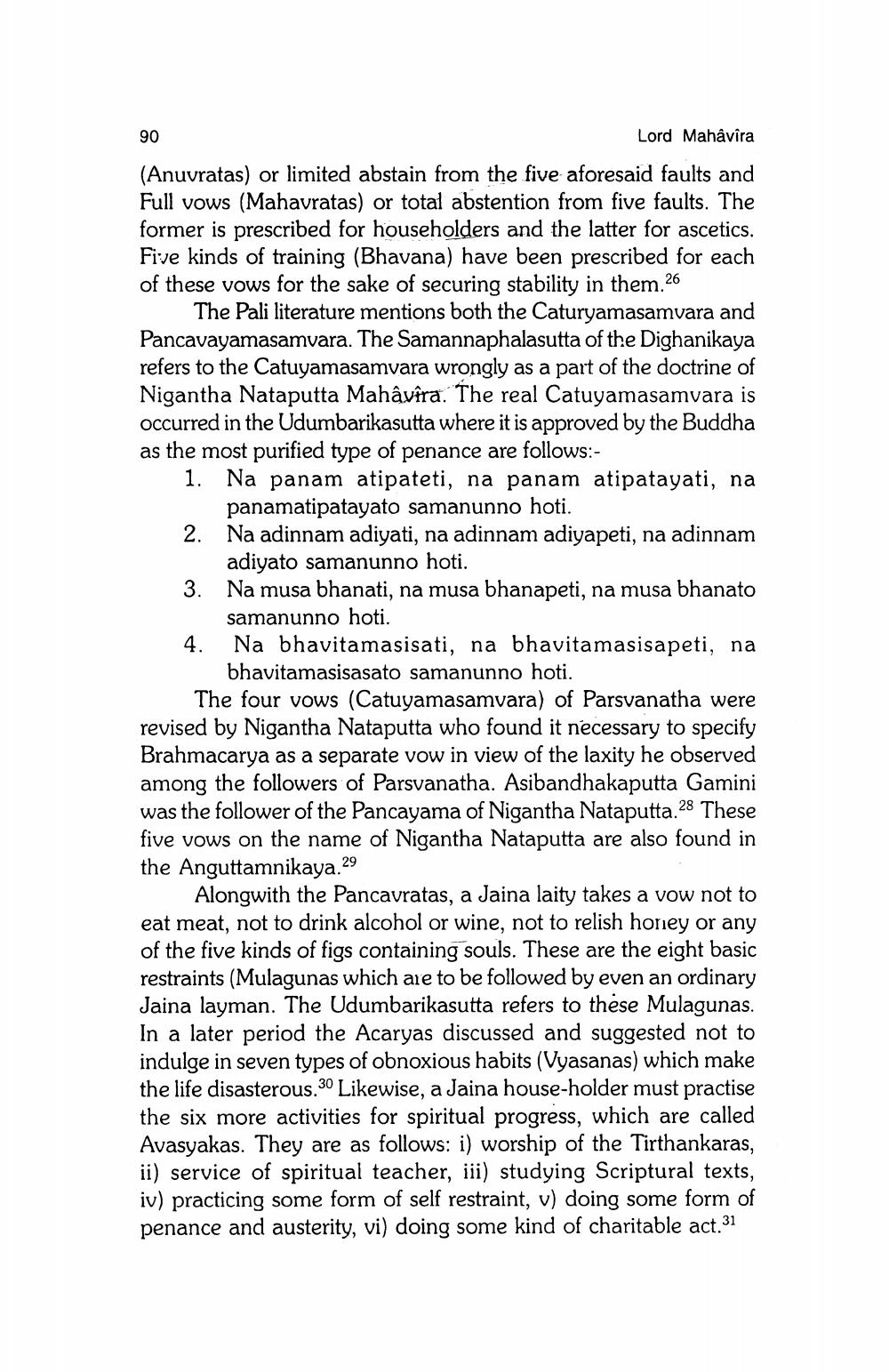________________
90
Lord Mahavira
(Anuvratas) or limited abstain from the five aforesaid faults and Full vows (Mahavratas) or total abstention from five faults. The former is prescribed for householders and the latter for ascetics. Five kinds of training (Bhavana) have been prescribed for each of these vows for the sake of securing stability in them.26
The Pali literature mentions both the Caturyamasamvara and Pancavayamasamvara. The Samannaphalasutta of the Dighanikaya refers to the Catuyamasamvara wrongly as a part of the doctrine of Nigantha Nataputta Mahatra. The real Catutamasamvara is occurred in the Udumbarikasutta where it is approved by the Buddha as the most purified type of penance are follows:1. Na panam atipateti, na panam atipatayati, na
panamatipatayato samanunno hoti. 2. Na adinnam adiyati, na adinnam adiyapeti, na adinnam
adiyato samanunno hoti. 3. Na musa bhanati, na musa bhanapeti, na musa bhanato
samanunno hoti. 4. Na bhavitamasisati, na bhavitamasisapeti, na
bhavitamasisasato samanunno hoti.
The four vows (Catuyamasamvara) of Parsvanatha were revised by Nigantha Nataputta who found it necessary to specify Brahmacarya as a separate vow in view of the laxity he observed among the followers of Parsvanatha. Asibandhakaputta Gamini was the follower of the Pancayama of Nigantha Nataputta.28 These five vows on the name of Nigantha Nataputta are also found in the Anguttamnikaya.29
Alongwith the Pancavratas, a Jaina laity takes a vow not to eat meat, not to drink alcohol or wine, not to relish honey or any of the five kinds of figs containing souls. These are the eight basic restraints (Mulagunas which are to be followed by even an ordinary Jaina layman. The Udumbarikasutta refers to these Mulagunas. In a later period the Acaryas discussed and suggested not to indulge in seven types of obnoxious habits (Vyasanas) which make the life disasterous.30 Likewise, a Jaina house-holder must practise the six more activities for spiritual progress, which are called Avasvakas. They are as follows: i) worship of the Tirthankaras ii) service of spiritual teacher, iii) studying Scriptural texts, iv) practicing some form of self restraint, v) doing some form of penance and austerity, vi) doing some kind of charitable act. 31




